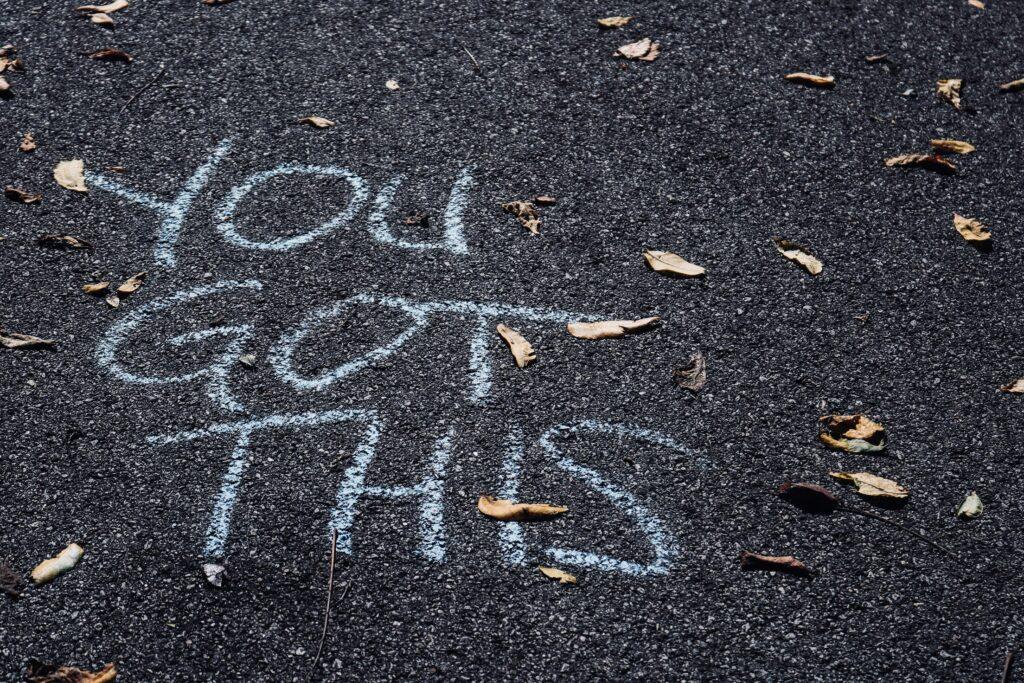
Photo by sydney Rae on Unsplash
Motivation is like gold dust. When we have it, complex tasks can feel so simple. But when our motivation runs dry, even the most simple of tasks can feel extraordinarily difficult.
‘Refinding’ motivation is a search many of us go on. There’s an abundance of motivational slogans, inspirational quotes and an industry of positive-vibe speakers to cater to this need.
Unfortunately, most of these external sources of motivation have a rather limited effect. Whilst these things can give a temporary boost, they are no match for genuine, internal motivation to succeed.
Books like Grit by Angela Duckworth highlight as much – someone with an intrinsic motivation is far more likely to accomplish a goal than someone who is doing it for some form of external validation. Doing something for the love of it means we will persevere for far longer than doing something just because we want to become rich or famous.
The funny thing about motivation is how wavering it can be. Some days, it can feel like it we are abundantly motivated. The next day, it can feel like it has completely disappeared.
The key to understanding this is that it’s not the activity that’s changing, it’s us.
The way we think and feel about something shapes our reality. The more time we spend dreading a task, the harder it becomes. We can flip this by committing to actions come rain or shine, as well as focussing on the positives, or pleasure that we get out of something.
This is all stuff that I had learned several years ago. Yet putting it into practice is always the most challenging part. Life also finds new ways to test us at different periods of our life.
My recent period of fatigue has had stretches where I had no desire to do anything at all. I had no motivation to move. I had to push myself just to eat. My body’s response was to slow down, making me just want to stay in bed.
Things have improved since then, yet motivation still can feel scary – asking myself what I want opens up deeper, existential questions about what I’m doing in life.
I went to a festival last weekend. It was a lot of people, and I did have rather strong bouts of anxiety at several points. But it was also really fun. The weather was (mostly) good, and I felt alive after passing a few days on my feet dancing.
Afterwards, I felt a jolt of energy in life. This was despite being far more physically tired (and rather sleep deprived). My therapist described it as a sort of reset to my dopamine controls.
When I reflect on it, creating fun for myself got simplified in my head. Going outside when it’s sunny is something fun and enjoyable.
This is in contrast to my more recent ways of thinking about ‘fun things’. I had inadvertently learnt that fun was meant to be challenging and/or educational – there needed to be a ‘point’ to everything. It’s probably why I found myself in such a humourless state recently.
Doing things for the joy of them can return us to a more innocent, childlike state. In our adult lives of routine and responsibility, we can lose the ability to have fun, like we did as kids. Part of the recipe of wellbeing is reconnecting with this side of ourselves.
For some people, recalibrating is instead doing less. We may be overdosing on our dopamine hits, making us crave the hits we get from it. Knowledge about social media addiction is pretty prevalent now, but most of us have experienced how all-consuming it can get as to whether we get likes or not. Time away can give perspective that perhaps we’re getting too engrossed in that one thing.
I don’t doubt that my life will be a see-saw act between being overly invested in something all the way back to a sense of ennui, or boredom. But finding the sweet spot of general motivation is important. It’s what makes us take care of ourselves and accomplish our goals.
And the best way to do that is to have fun.